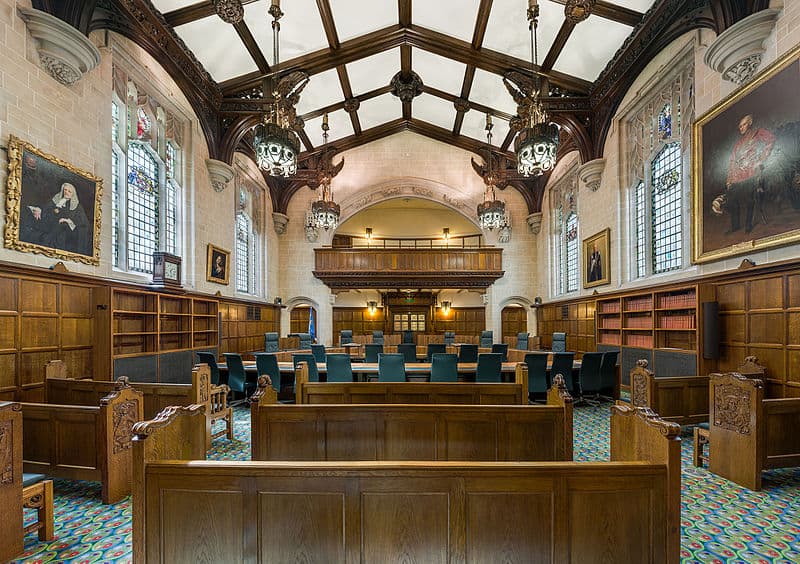
Benjamin Sachs is the Kestnbaum Professor of Labor and Industry at Harvard Law School and a leading expert in the field of labor law and labor relations. He is also faculty director of the Center for Labor and a Just Economy. Professor Sachs teaches courses in labor law, employment law, and law and social change, and his writing focuses on union organizing and unions in American politics. Prior to joining the Harvard faculty in 2008, Professor Sachs was the Joseph Goldstein Fellow at Yale Law School. From 2002-2006, he served as Assistant General Counsel of the Service Employees International Union (SEIU) in Washington, D.C. Professor Sachs graduated from Yale Law School in 1998, and served as a judicial law clerk to the Honorable Stephen Reinhardt of the United States Court of Appeals for the Ninth Circuit. His writing has appeared in the Harvard Law Review, the Yale Law Journal, the Columbia Law Review, the New York Times and elsewhere. Professor Sachs received the Yale Law School teaching award in 2007 and in 2013 received the Sacks-Freund Award for Teaching Excellence at Harvard Law School. He can be reached at [email protected].
As has been widely reported, the British Supreme Court ruled today that London Uber drivers are “workers,” and not independent contractors, within the meaning of British law. Accordingly, these drivers are entitled to a host of British employment law protections including the national minimum wage and paid annual leave. The decision on employment status is a major victory for the drivers, and confirms what many have long argued – that Uber exercises sufficient control over drivers to be held legally responsible for employment protections.
But there is a second piece of the U.K. decision that is of equal import, and yet has received less attention. Namely, the British court reached a decision regarding how to calculate Uber drivers’ “working time” – how to determine when drivers are working for Uber and thus entitled to accrue wages and benefits. In brief, the Court held that drivers are “working” within the meaning of British law whenever they are “logged onto the Uber app in London available to accept a trip request.” This means that work time in the Uber context includes more than the time when a driver is transporting a passenger from pick-up to destination, and more than the time when a driver has accepted a fare and is driving to the pick-up location. Any time a driver is logged in and available to accept a ride is working time and must be compensated.
The “working time” piece of the Supreme Court’s decision will have critical ramifications for what London Uber drivers actually earn in wages and benefits. To the extent that the legal determination of working time is similar across jurisdictions, moreover, the decision will also be useful to other judges called on to conduct that determination. The U.K. court did note a caveat. If drivers are logged into the Uber app but “equally ready and willing to accept a trip request received from another [TNC] operator,” the question of whether such time counts as working time for Uber would require a different analysis. In the London case, the court concluded that Uber’s market share was so dominant that, as a practical matter, alternative platforms were not available to the drivers and so the “working time” analysis was uncomplicated. When and where Uber is less dominant, and drivers log onto different platforms simultaneously, responsibility for work time may need to be divided.
In any case, today’s UK decision is doubly consequential: the court clarifies drivers’ employment status and the time for which they must be compensated.










Daily News & Commentary
Start your day with our roundup of the latest labor developments. See all
February 6
The California Supreme Court rules on an arbitration agreement, Trump administration announces new rule on civil service protections, and states modify affirmative action requirements
February 5
Minnesota schools and teachers sue to limit ICE presence near schools; labor leaders call on Newsom to protect workers from AI; UAW and Volkswagen reach a tentative agreement.
February 4
Lawsuit challenges Trump Gold Card; insurance coverage of fertility services; moratorium on layoffs for federal workers extended
February 3
In today’s news and commentary, Bloomberg reports on a drop in unionization, Starbucks challenges an NLRB ruling, and a federal judge blocks DHS termination of protections for Haitian migrants. Volatile economic conditions and a shifting political climate drove new union membership sharply lower in 2025, according to a Bloomberg Law report analyzing trends in labor […]
February 2
Amazon announces layoffs; Trump picks BLS commissioner; DOL authorizes supplemental H-2B visas.
February 1
The moratorium blocking the Trump Administration from implementing Reductions in Force (RIFs) against federal workers expires, and workers throughout the country protest to defund ICE.